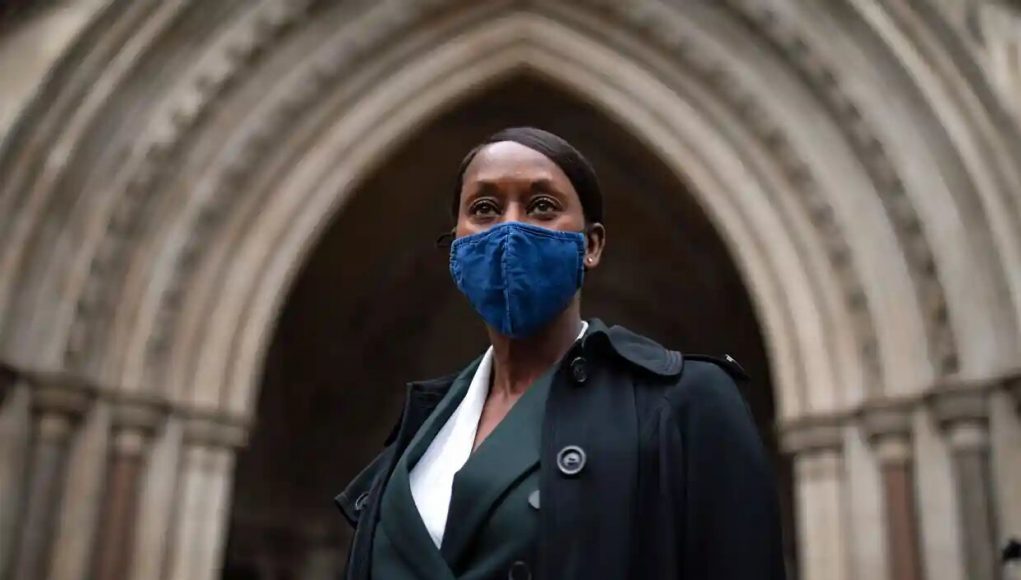Black Met police chief wins her job back after tribunal says sacking was unfair
Supt Robyn Williams was dismissed in March 2020 after being convicted for possessing a child abuse video that she was sent unsolicited via WhatsApp and never viewed.

A black police chief dismissed from the Metropolitan police has won her job back after a tribunal said her sacking was unfair.
Supt Robyn Williams was dismissed in March 2020 after being convicted for possessing a child abuse video that she was sent unsolicited via WhatsApp and never viewed.
On Wednesday a police appeals tribunal rescinded her sacking and replaced it with a final written warning, after Williams successfully argued her dismissal was unreasonable and unfair.
The Met’s black police association claimed her sacking was an example of institutional racism. Others in policing thought she had been convicted for lying over a relatively small matter and would have escaped any trouble if she had told the truth.
Williams now can return to the Met to resume her 36-year career which saw her decorated for her work.
Before her dismissal Williams was one of the most senior female African-Caribbean officers in Britain and was praised for her work after the 2017 Grenfell fire. She has campaigned for more women in policing and has been awarded the Queen’s Police Medal.
Williams said: “For over a year, before and during the pandemic, I have continued to support local people by working within community initiatives. I am therefore delighted to be able to return to the work I love, serving our communities within London.”
The case started in February 2018 after Williams was sent a WhatsApp message by her sister containing a video of a young girl being abused. The sister was outraged and wanted the culprit hunted down by police.
Williams never played the video and she maintains she never knew it was on her phone and thus in her possession.
But a jury convicted her after the prosecution said Williams failed to report it because she feared doing so would get her sister into trouble. They pointed to the fact the sisters spent the best part of a day together before the video came to the attention of the police, and claimed it must have been discussed by the two.
The abuse video was sent by the sister to a WhatsApp group of 17 people, one of whom reported it to police. Williams was the only one of the group of 17 to be put on trial.
She had previously lost an attempt to overturn her criminal conviction at the court of appeal.
Police Superintendents’ Association professional standards coordinator Victor Marshall said: “We are pleased that today’s panel agreed that her dismissal was unreasonable in light of the complex circumstances surrounding her conviction and we are delighted she will be able to continue to serve the communities of London.”
The Met tribunal which sacked her was chaired by assistant commissioner Helen Ball. She was found guilty of gross misconduct, a finding which remains, and was dismissed despite an extraordinary outpouring of support warning that her sacking would damage the service’s reputation.
Pleas for leniency came from police officers and community figures. Martin Hewitt, chair of the National Police Chiefs’ Council, wrote that Williams’s work after the Grenfell disaster had been invaluable. Despite the criminal conviction, Hewitt wrote: “I believe she still has a contribution to make to policing.”
Yvette Williams from Justice for Grenfell, the community group fighting for victims of the fire, wrote: “Wherever Robyn Williams goes, confidence in policing increases.”
The manager of the charity shop where Williams worked for free for 200 hours as part of her sentence revealed that, having completed those hours, the officer had continued working at the shop twice a week as a volunteer.
Scotland Yard cannot appeal against the decision in the police discipline process, and the only option would be for the force to seek a judicial review in the high court.
In a statement the Met said: “The tribunal determined Ms Williams’ dismissal should be replaced with a final written warning. We await the full judgment. Once received, we will then consider the ruling and engage with Ms Williams’ representatives accordingly.”
… we have a small favour to ask. Millions are turning to the Guardian for open, independent, quality news every day, and readers in 180 countries around the world now support us financially.
We believe everyone deserves access to information that’s grounded in science and truth, and analysis rooted in authority and integrity. That’s why we made a different choice: to keep our reporting open for all readers, regardless of where they live or what they can afford to pay. This means more people can be better informed, united, and inspired to take meaningful action.
In these perilous times, a truth-seeking global news organisation like the Guardian is essential. We have no shareholders or billionaire owner, meaning our journalism is free from commercial and political influence – this makes us different. When it’s never been more important, our independence allows us to fearlessly investigate, challenge and expose those in power.
SOURCE: THE GUARDIAN


